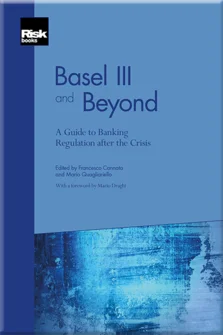Systemically Important Banks
Daryl Collins, David Rule
Systemically Important Banks
Foreword
Introduction to 'Basel III and Beyond'
The Big Financial Crisis
The Policy Response: From the G20 Requests to the FSB Roadmap; Working Towards the Proposals of the Basel Committee
The New Definition of Regulatory Capital
A New Framework for the Trading Book
Counterparty Credit Risk and Other Risk-Coverage Measures
Tools for Mitigating the Procyclicality of Financial Regulation
The Regulatory Leverage Ratio
The New Framework for Liquidity Risk
The Discipline of Credit Rating Agencies
Systemically Important Banks
Regulating Remuneration Schemes in Banking
Crisis Management and Resolution
The Impact of the New Regulatory Framework
A Brazilian Perspective on Basel III
A New Institutional Framework for Financial Regulation and Supervision
Structural Regulation Redux: The Volcker Rule
The Changing Uses of Contingent Capital under the Basel III Framework
10.1 Introduction
During the 2007–2009 financial crisis, a number of systemically important financial institutions in different jurisdictions experienced significant distress or failure with several requiring unprecedented levels of government support. This chapter sets out the international policy response, as it has developed so far, towards systemically important banks (SIBs). Policy in this area is still being developed and the purpose of the chapter is to describe the current international debate. It does not set out the position of the UK Financial Services Authority.
A joint report by the International Monetary Fund (IMF), Bank for International Settlements (BIS), and Financial Stability Board (FSB) to the G20 finance ministers and governors in 2009 defined systemic risk as “a risk of disruption to financial services that is (i) caused by an impairment of all or parts of the financial system and (ii) has the potential to have serious negative consequences for the real economy” (IMF, BIS, FSB 2009). While this chapter focuses on the policy response to SIBs, it is worth noting that
Copyright Infopro Digital Limited. All rights reserved.
As outlined in our terms and conditions, https://www.infopro-digital.com/terms-and-conditions/subscriptions/ (point 2.4), printing is limited to a single copy.
If you would like to purchase additional rights please email info@risk.net
Copyright Infopro Digital Limited. All rights reserved.
You may share this content using our article tools. As outlined in our terms and conditions, https://www.infopro-digital.com/terms-and-conditions/subscriptions/ (clause 2.4), an Authorised User may only make one copy of the materials for their own personal use. You must also comply with the restrictions in clause 2.5.
If you would like to purchase additional rights please email info@risk.net











